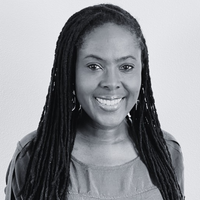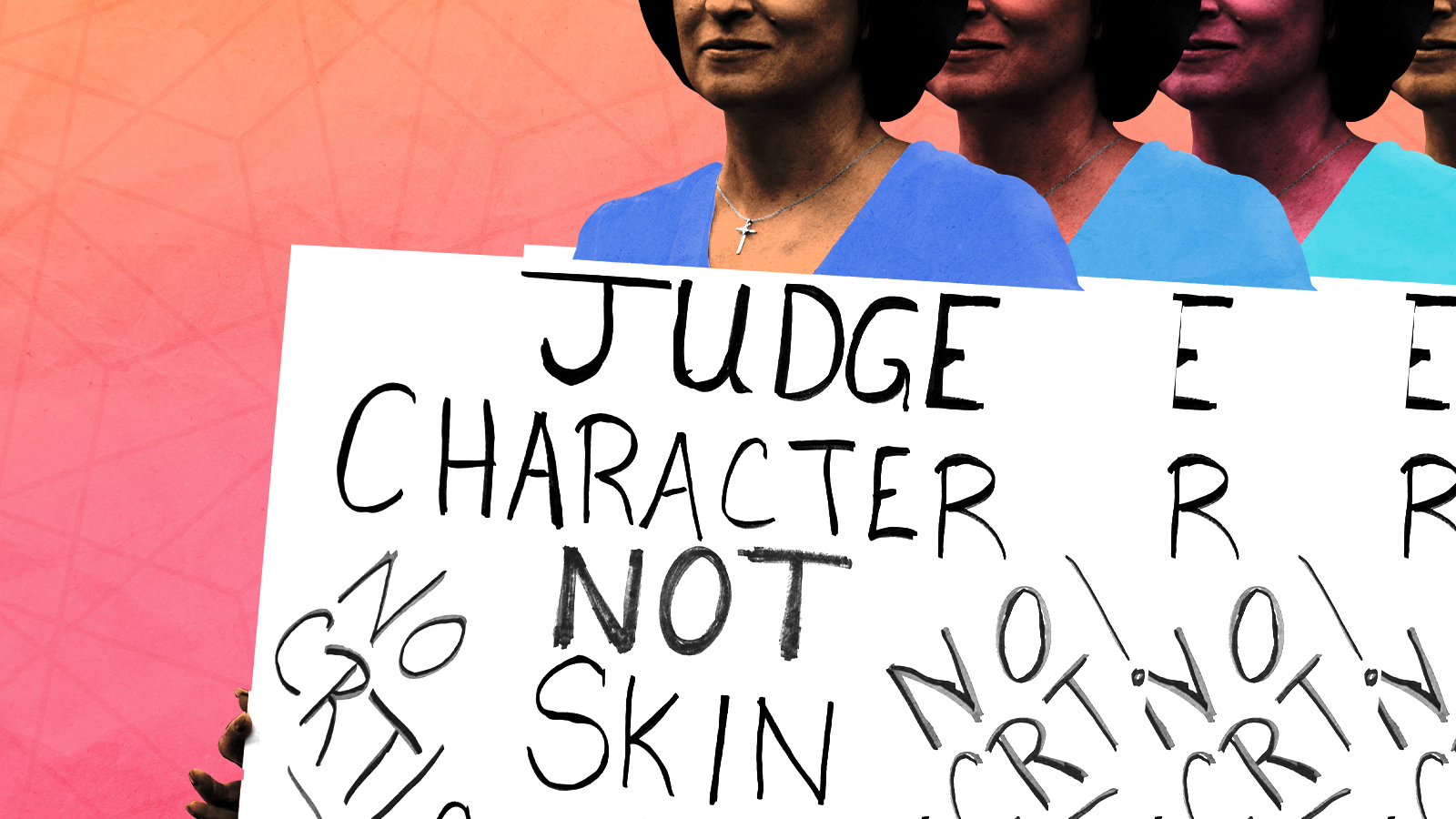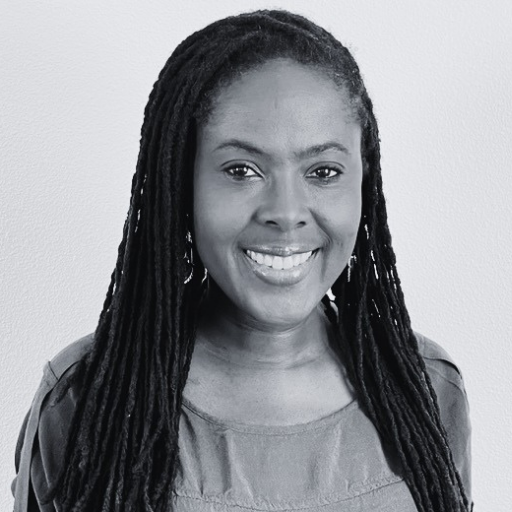The Black voices missing from the 'parents' rights' debate
A false binary is confusing our conversations around parental influence in public education


A free daily email with the biggest news stories of the day – and the best features from TheWeek.com
You are now subscribed
Your newsletter sign-up was successful
How much control should parents have over their kids' education?
The debate around parental rights is newly intense right now, but it's not new, and U.S. courts have strongly curtailed parental influence in public schools. While parents have a right to choose where their children go to school, their rights significantly stop at the doors of the schoolhouse. In Fields v. Palmdale (2005), for example, the 9th Circuit ruled in favor of the Palmdale School District — and against concerned parents who believed objectionable ideas about sex had been incorporated into their children's public school curriculum. While the parents sought to invoke the 14th Amendment's Due Process Clause to claim a right to "control the education and upbringing of one's children," the court decided they could not prescribe curriculum choices or how the state should teach their children.
American parents haven't entirely accepted that precedent, and this fall has seen a wave of activism around public education. Parental rights are at the center of national debate, and parents are a "new special interest group" demanding politicians' attention. But too often lost in the controversy is which parents want change. A false binary in the debate is obscuring a vital conversation within the Black community.
The Week
Escape your echo chamber. Get the facts behind the news, plus analysis from multiple perspectives.

Sign up for The Week's Free Newsletters
From our morning news briefing to a weekly Good News Newsletter, get the best of The Week delivered directly to your inbox.
From our morning news briefing to a weekly Good News Newsletter, get the best of The Week delivered directly to your inbox.
Because much of the current round of debate involves curricula shaped (or suspected of being shaped) by critical race theory (CRT), a narrative about this activism has rapidly emerged: The new special interest group doesn't include Black parents. In this telling, Black and anti-racist parents favor using a CRT lens in K-12 education, while white racist conservative parents oppose it. In fact, "parents" has been co-opted by white racists, the story goes, and "parents' rights" too is coded language. "It is not long ago that racist Southern politicians rallied against integration with an argument for 'states' rights,' a call to be free of federal laws seeking to end segregation," wrote journalist Juan Williams at The Hill this month. "Now the message is that white parents are being ignored when they complain that their children are uncomfortable learning about racism."
This framing is unfair to many of the white parents objecting to new curricula at school board meetings this fall. While it is true that some anti-CRT activism is simply the reactionary response of parents who have a vested interest in keeping true and balanced history at bay, racism is by no means the only reason parent activists oppose CRT-influenced curricula.
As conservative educator Daniel Buck wrote at National Review on Saturday, it is more than possible to give students an unflinching view of the most difficult parts of American history without using a CRT lens. Buck's students learn the truth about U.S. slavery by reading Frederick Douglass, he explained, while Billie Holiday's "Strange Fruit" provides context for the study of lynching in the Jim Crow South. The harsh realities of American history are presented alongside a thorough exploration of American ideals and America's founding documents. The ill treatment of Black people is treated as hypocrisy — America not living up to her ideals.
But white parents aren't the only ones misrepresented by that framing. It also misses a more nuanced and perhaps more important conversation happening amongst Black parents — between those who feel the "new special interest" group represents them and those who do not.
A free daily email with the biggest news stories of the day – and the best features from TheWeek.com
This is the conversation often overshadowed by the aforementioned false binary. The fact of the matter is Black parents are having a deep intra-cultural debate, with homeschoolers, traditional Black Christians, and Black conservatives in dialogue with Black progressives.
According to the U.S. Census, Black families now have the highest homeschooling rate amongst American households. As more Black families, like mine, see our children thrive in home education settings, we're becoming vocal advocates for school choice and the right of parents to take charge of our children's education.
And Black parents attending school board meetings and advocating on behalf of our children is nothing new. We're following in the footsteps of Virginia Walden Ford — one of the first 130 students to desegregate Little Rock, Arkansas, public schools — whose own school choice advocacy in the 1990s was dramatized in Miss Virginia. Ford was a Black mother mobilizing other concerned parents and taking on educational power players, many of whom were also Black. She was a Black mother arguing for conservative educational policy and being met with resistance from Black progressive educators. Her interest group championing parental rights in public education wasn't the exclusive domain of white parents. Neither are parents' rights groups today.
That false binary framing makes this impossible to see. It leaves no space for the views of Black parents who also oppose CRT in K-12 education. The national debate never seems to include our perspectives.
For example, I take issue with racial essentialism and the way in which all productive traits and accomplishments are casually attributed to "whiteness." Black skin being placed at the bottom of a social hierarchy where race is determinative of success doesn't sit well with me. And while I'm keenly aware of the role race has played in American history, I'm opposed to any classroom teaching that may undermine a narrative of Black American excellence, agency, and resilience.
Such objections are particularly common among Black parents who are also theologically conservative Christians. These parents, like Delano Squires, a homeschooling father, find the Marxist roots of CRT incompatible with our faith and what it says about our place in the world. At the core of our belief system is a God who has created all people in his image, a God who shows no partiality. We believe the destiny of our children is not in the hands of white supremacists, but in the hands of God. For us, Critical Race Theory not only fails to adequately emphasize Black excellence, agency, and resilience. It also fails to give credence to the God who so often made "a way out of no way."
This discussion is happening among Black parents even if it's being ignored in the broader national debate. But the popular binary impoverishes that debate. The Black American experience is diverse, and so are our opinions on education. The national conversation would be improved for hearing all of us, not just the progressive few.
Kemi Ingram is an educator, advocate, and homeschooling mother of three. Since 2005, she has worked to mobilize parent advocates around issues effecting children and families. She holds a bachelor's in public policy, management, and planning from the University of Southern California, a master's in theology from Fuller Theological Seminary, and an M.Th. in applied theology from Oxford University.
-
 House votes to end Trump’s Canada tariffs
House votes to end Trump’s Canada tariffsSpeed Read Six Republicans joined with Democrats to repeal the president’s tariffs
-
 Bondi, Democrats clash over Epstein in hearing
Bondi, Democrats clash over Epstein in hearingSpeed Read Attorney General Pam Bondi ignored survivors of convicted sex offender Jeffrey Epstein and demanded that Democrats apologize to Trump
-
 Are Big Tech firms the new tobacco companies?
Are Big Tech firms the new tobacco companies?Today’s Big Question Trial will determine if Meta, YouTube designed addictive products
-
 The billionaires’ wealth tax: a catastrophe for California?
The billionaires’ wealth tax: a catastrophe for California?Talking Point Peter Thiel and Larry Page preparing to change state residency
-
 Bari Weiss’ ‘60 Minutes’ scandal is about more than one report
Bari Weiss’ ‘60 Minutes’ scandal is about more than one reportIN THE SPOTLIGHT By blocking an approved segment on a controversial prison holding US deportees in El Salvador, the editor-in-chief of CBS News has become the main story
-
 Has Zohran Mamdani shown the Democrats how to win again?
Has Zohran Mamdani shown the Democrats how to win again?Today’s Big Question New York City mayoral election touted as victory for left-wing populists but moderate centrist wins elsewhere present more complex path for Democratic Party
-
 Millions turn out for anti-Trump ‘No Kings’ rallies
Millions turn out for anti-Trump ‘No Kings’ ralliesSpeed Read An estimated 7 million people participated, 2 million more than at the first ‘No Kings’ protest in June
-
 Ghislaine Maxwell: angling for a Trump pardon
Ghislaine Maxwell: angling for a Trump pardonTalking Point Convicted sex trafficker's testimony could shed new light on president's links to Jeffrey Epstein
-
 The last words and final moments of 40 presidents
The last words and final moments of 40 presidentsThe Explainer Some are eloquent quotes worthy of the holders of the highest office in the nation, and others... aren't
-
 The JFK files: the truth at last?
The JFK files: the truth at last?In The Spotlight More than 64,000 previously classified documents relating the 1963 assassination of John F. Kennedy have been released by the Trump administration
-
 'Seriously, not literally': how should the world take Donald Trump?
'Seriously, not literally': how should the world take Donald Trump?Today's big question White House rhetoric and reality look likely to become increasingly blurred
